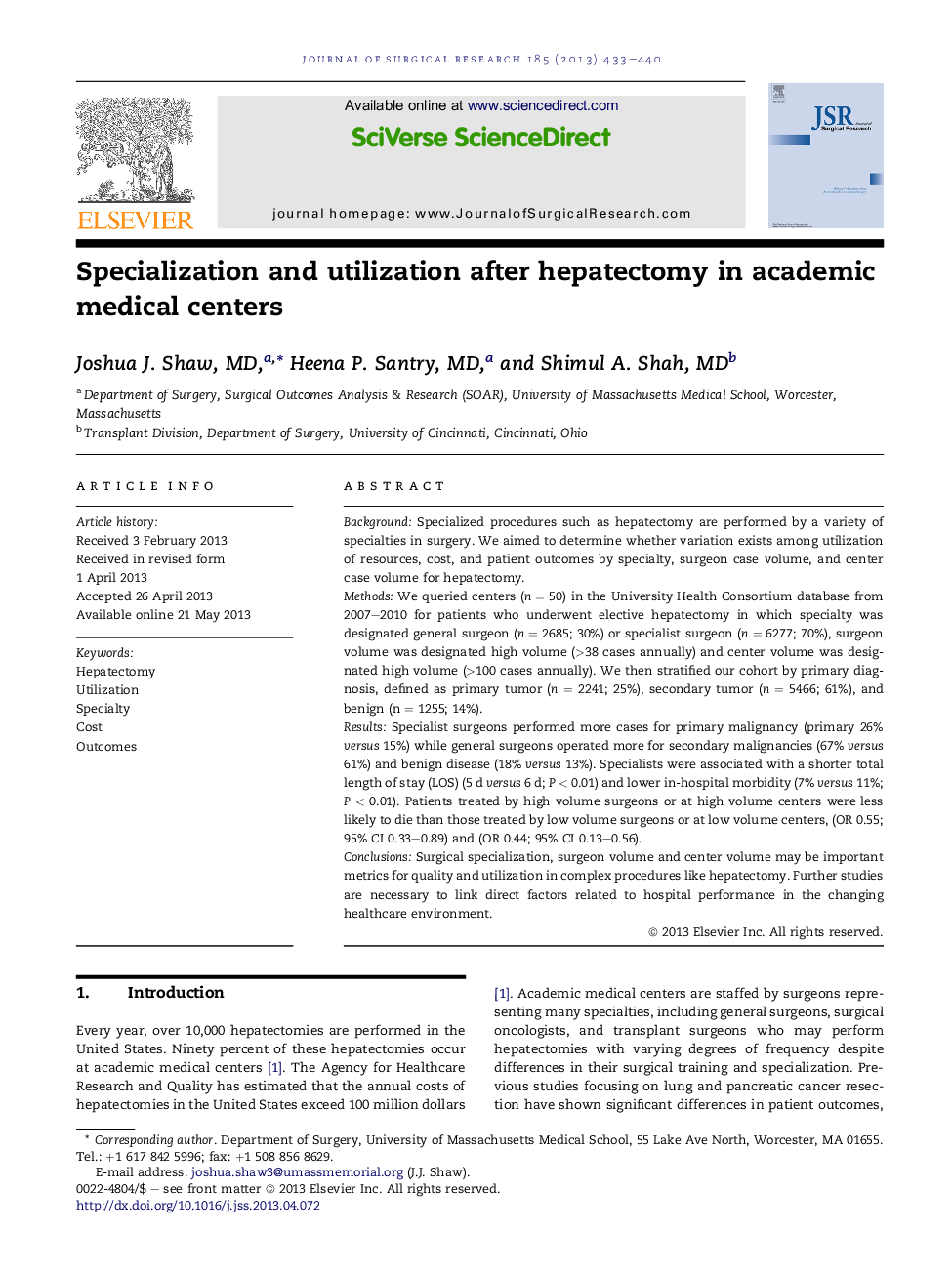| Article ID | Journal | Published Year | Pages | File Type |
|---|---|---|---|---|
| 4300744 | Journal of Surgical Research | 2013 | 8 Pages |
BackgroundSpecialized procedures such as hepatectomy are performed by a variety of specialties in surgery. We aimed to determine whether variation exists among utilization of resources, cost, and patient outcomes by specialty, surgeon case volume, and center case volume for hepatectomy.MethodsWe queried centers (n = 50) in the University Health Consortium database from 2007–2010 for patients who underwent elective hepatectomy in which specialty was designated general surgeon (n = 2685; 30%) or specialist surgeon (n = 6277; 70%), surgeon volume was designated high volume (>38 cases annually) and center volume was designated high volume (>100 cases annually). We then stratified our cohort by primary diagnosis, defined as primary tumor (n = 2241; 25%), secondary tumor (n = 5466; 61%), and benign (n = 1255; 14%).ResultsSpecialist surgeons performed more cases for primary malignancy (primary 26% versus 15%) while general surgeons operated more for secondary malignancies (67% versus 61%) and benign disease (18% versus 13%). Specialists were associated with a shorter total length of stay (LOS) (5 d versus 6 d; P < 0.01) and lower in-hospital morbidity (7% versus 11%; P < 0.01). Patients treated by high volume surgeons or at high volume centers were less likely to die than those treated by low volume surgeons or at low volume centers, (OR 0.55; 95% CI 0.33–0.89) and (OR 0.44; 95% CI 0.13–0.56).ConclusionsSurgical specialization, surgeon volume and center volume may be important metrics for quality and utilization in complex procedures like hepatectomy. Further studies are necessary to link direct factors related to hospital performance in the changing healthcare environment.
